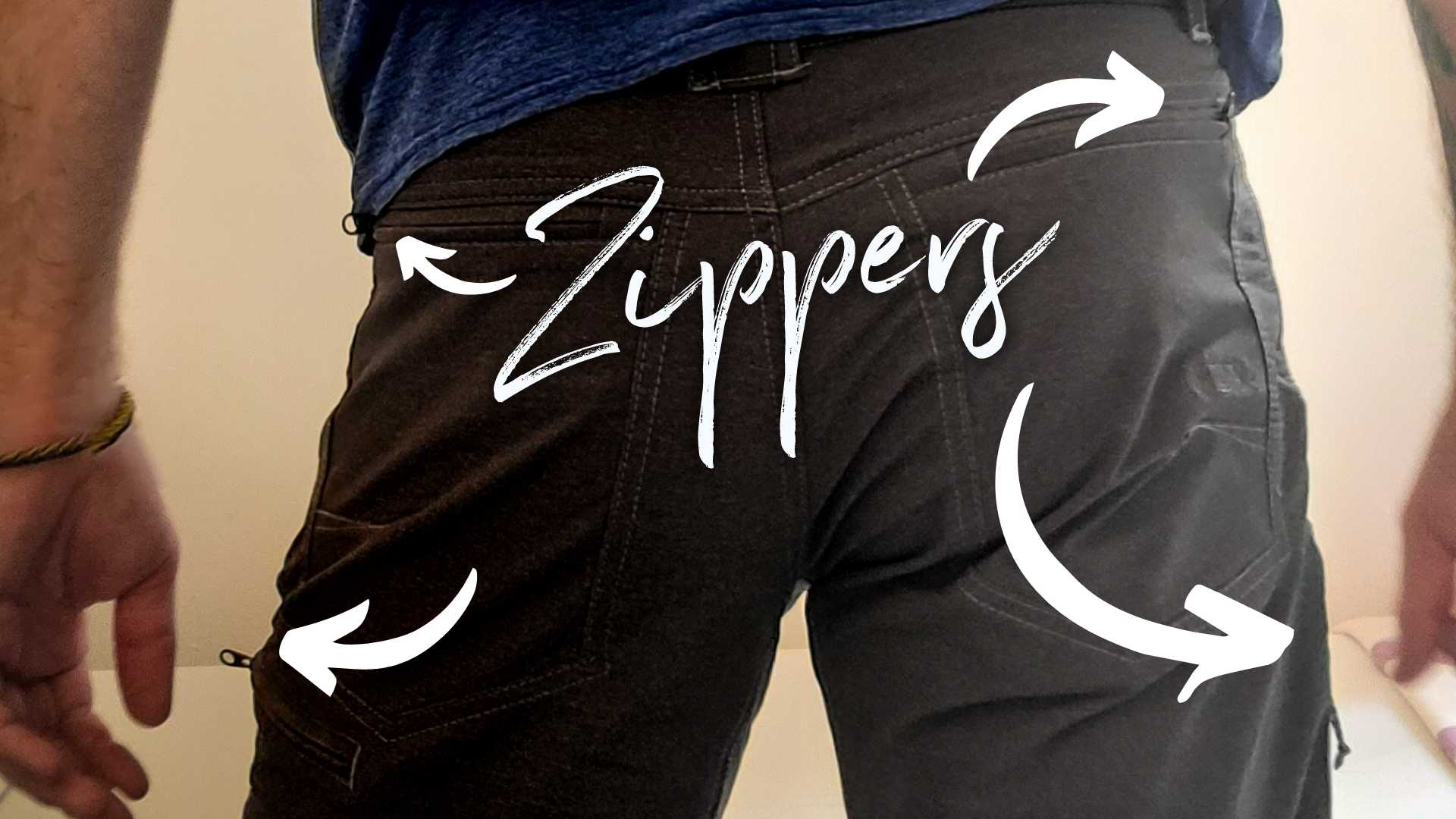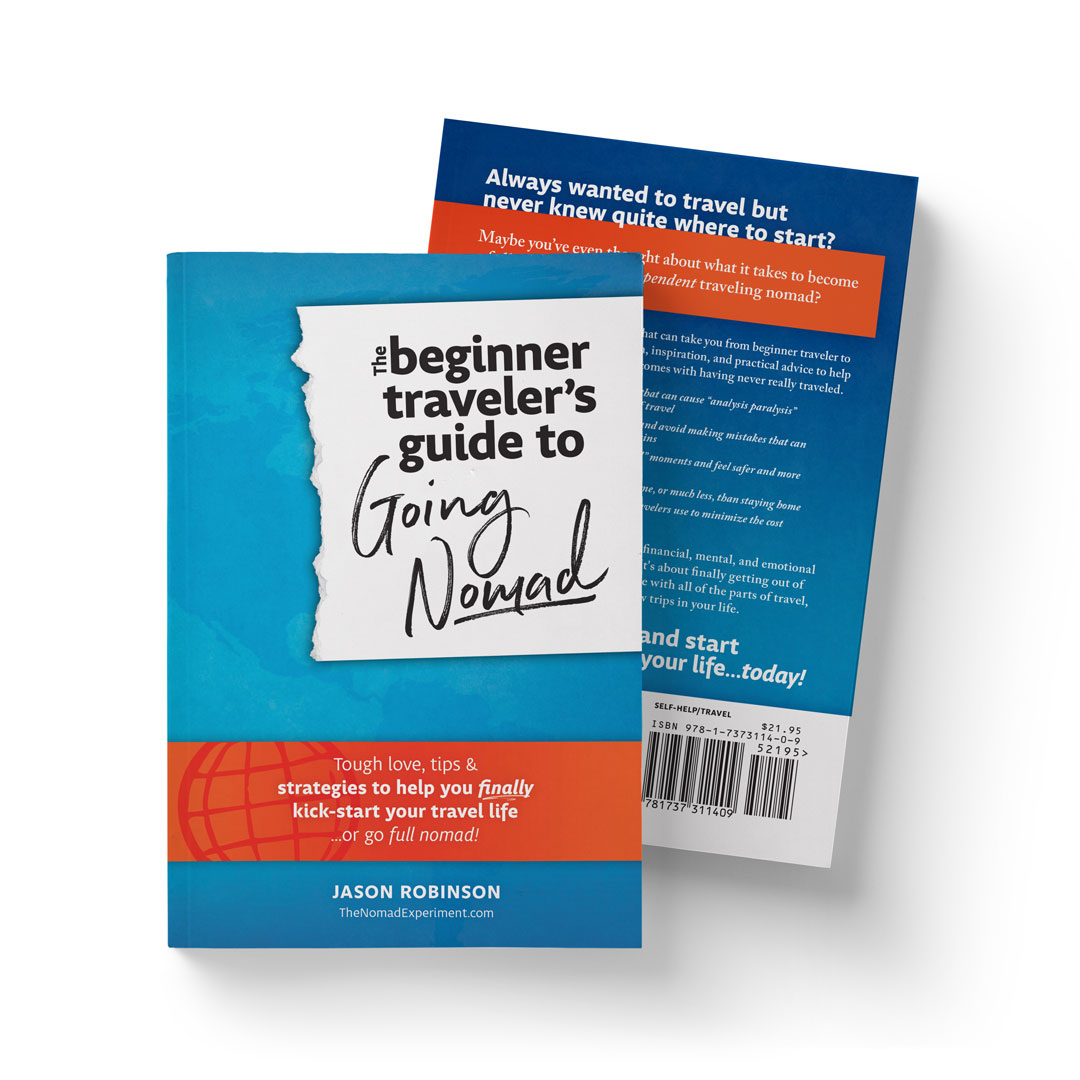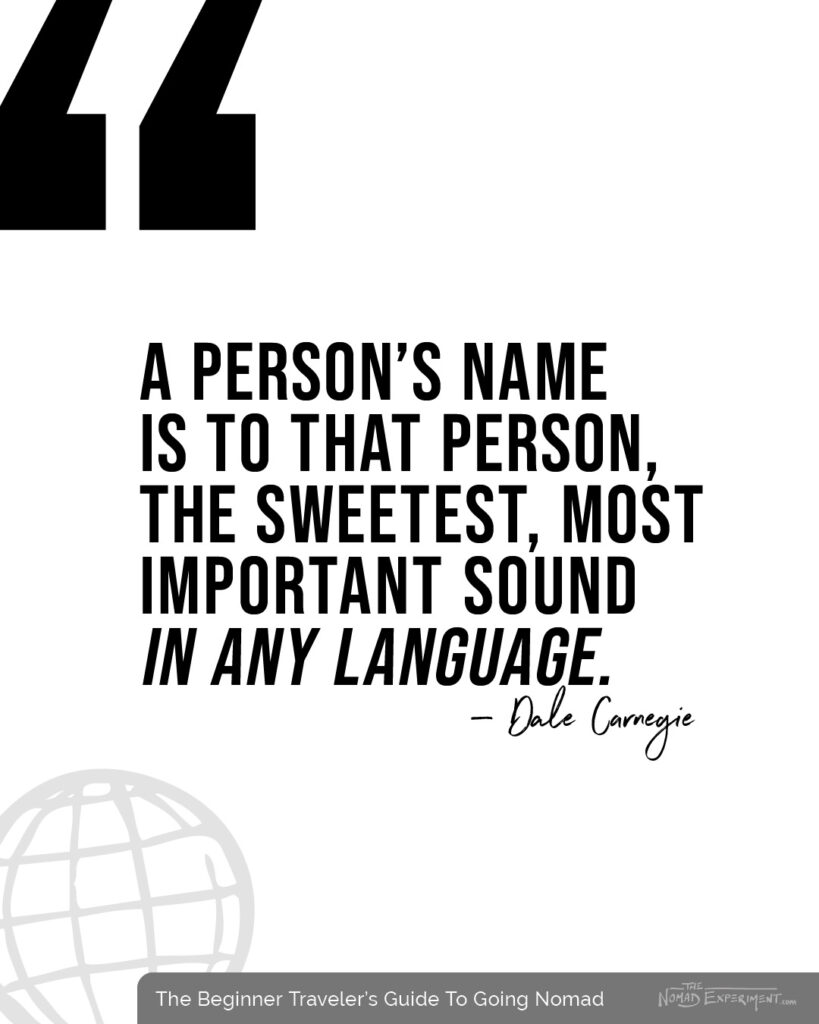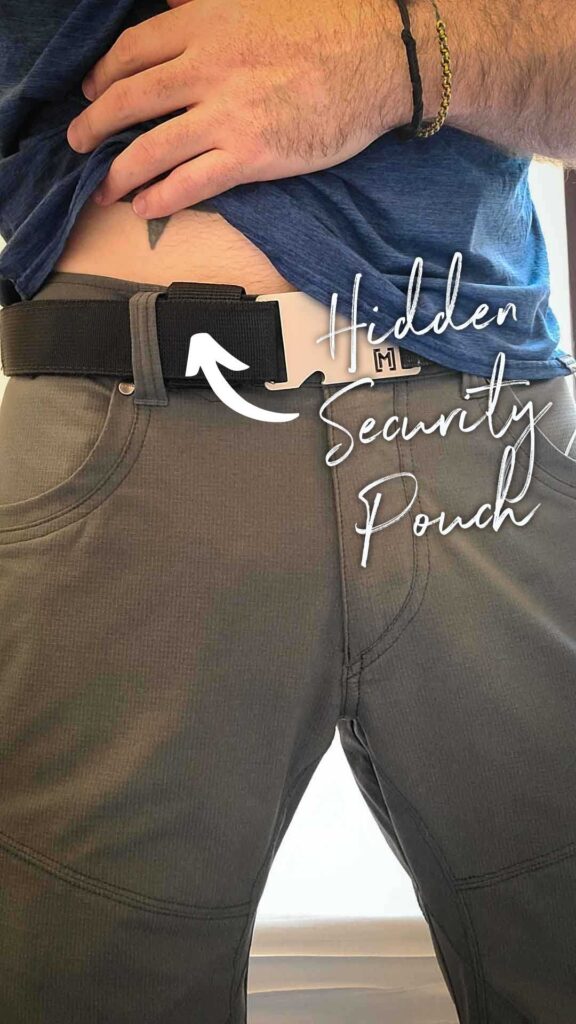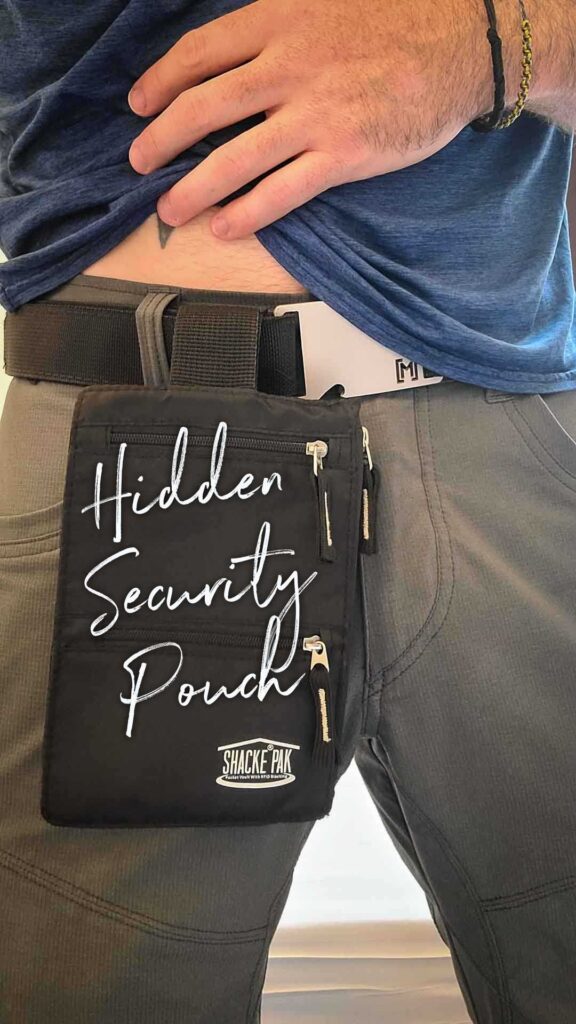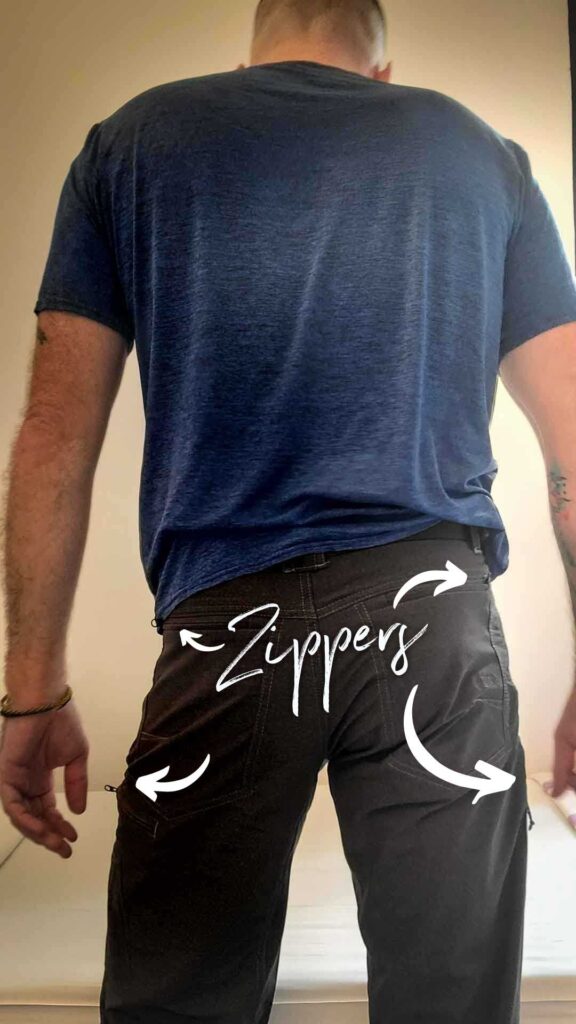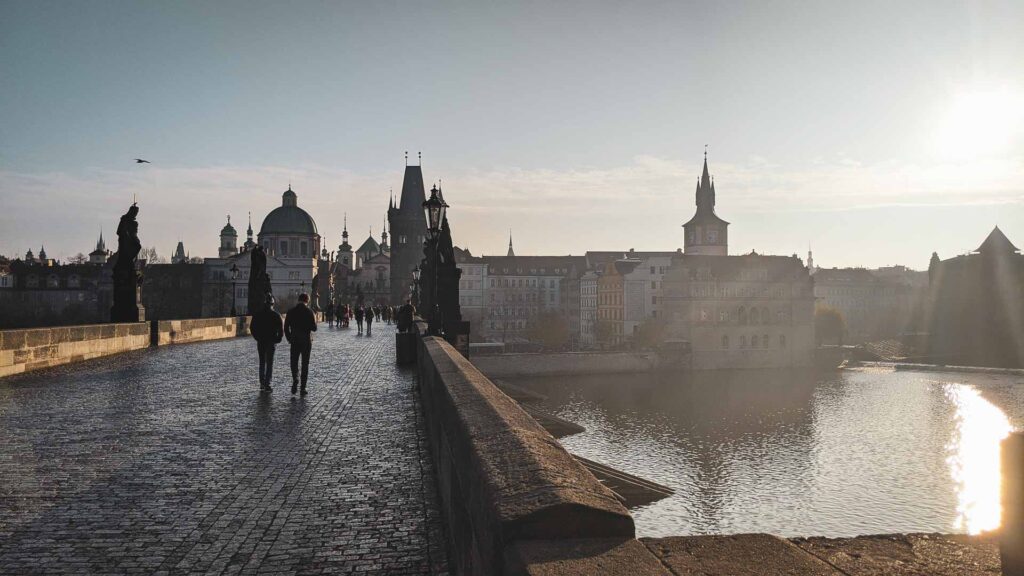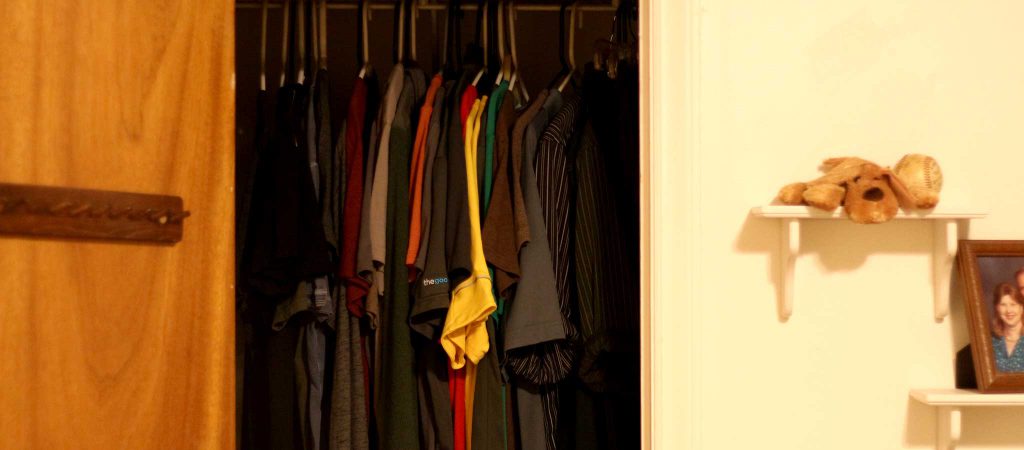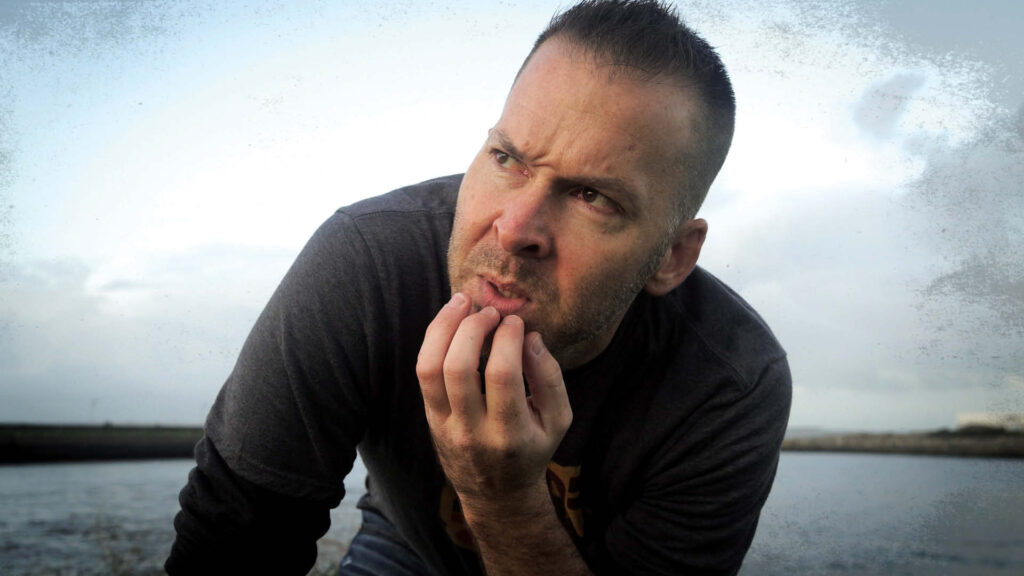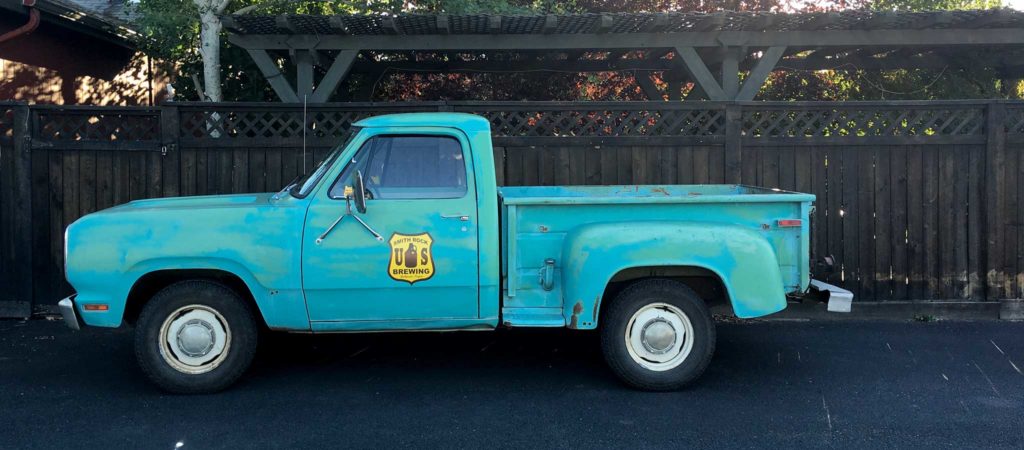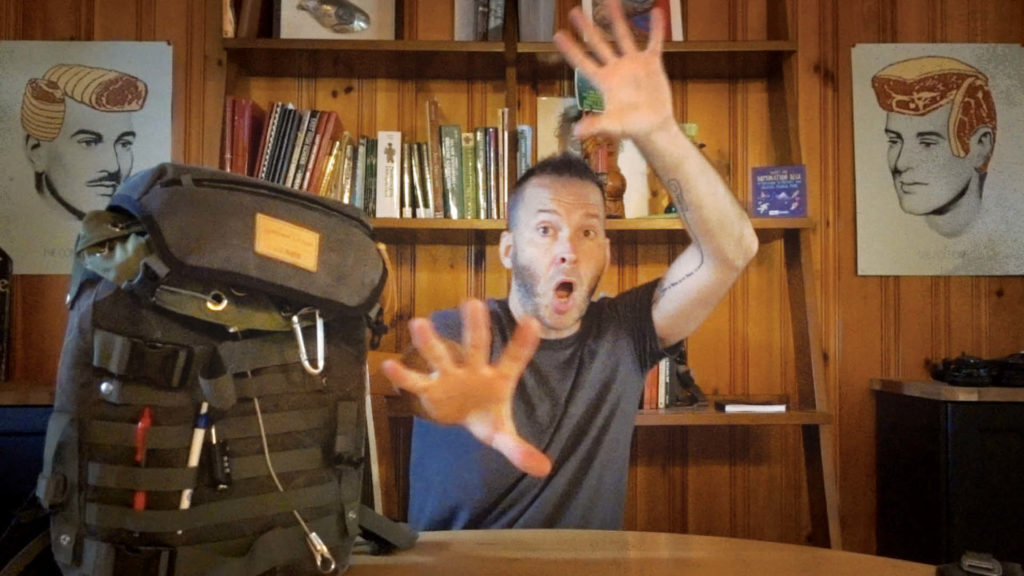UPDATED: 18 Safe Traveling Tips For Newbies—Keep Yourself Safe & Reduce Your Travel Anxiety
Spoiler Alert. I Had A Serious Fear Of Travel Outside Of The US. Wait…Had?
Wow. I just realized that it was only a few of years ago that I bought a 1-way ticket to Mexico in an attempt to start chipping away at my fear of travel. I wanted to see new things, but more importantly, learn from others and grow empathy to be a better person…er…human being and world citizen. Crazy enough, I was in my late 30s and very new to travel. And since I was learning and traveling solo, I had some serious travel anxiety to deal with.
This article isn’t meant to feed your paranoia, and you don’t need to implement all of these at once…or any of them for that fact. Just choose what feels right for your situation and know your options!
Have you ever heard the one about how to live through a bear attack? You only have to be able to run faster than your friend…not necessarily the bear. The same general idea applies here!
Connect & Share This Article
Join the email list to stay in the loop on new releases!
This site participates in the Amazon Services LLC Associates Program and other affiliate programs and may earn from qualifying purchases. You’re never charged more, but it helps out little by little! Check out “Privacy” in the top menu if you need to know more!
When I saw my 3rd country I had never been to a country that didn’t speak English as a first language. So my first time traveling internationally was kind of scary for me to say the least. The bottom line is that I had to do what I needed to do to reduce my specific travel anxiety to make me feel more comfortable and to get me going.
I guess that’s the first tip:
You do you.
NOTE: This article is deep
But there is some really good travel safety information here. I know your time is valuable, but some of these travel safety tips could literally save you hundreds…if not thousands of dollars…if you’ve implemented them when the sh*t hits the fan. I appreciate you being here, and I hope you get tons out of this one!
ANOTHER NOTE: These travel safety tips aren’t necessarily in order
I tried, but it was hard. Travel is messy, and writing an article about taking the fear out of travel is a little messy too. But they are at least as organized as I could make it.
OK. Here we go!
Travel Safety Tip #1: You Do You—Do whatever you need feel is necessary to reduce your travel anxiety
If you’re new to travel, or better yet new to travel and traveling solo, you need to do what is right for you to feel comfortable. Don’t cut corners just to look cool or avoid looking silly to the eyes of outside minds. That includes not giving a sh*t whether someone else thinks you’re being too paranoid, overthinking it, or taking what they think are excessive precautions.
READ NEXT: The Learn To Travel Series: A Brief Apology To Fear
Top Travel Tips: Go With Your Gut!
No matter what age you are, if you’ve never done something there is usually a real tendency to back away from what you don’t know or understand. I’m comfortable calling that fear, but you can call it whatever you want. Once you’re better traveled or more comfortable, in hindsight you may end up thinking that some of the things that you did to make yourself feel safer when traveling were kind of silly.
That’s OK—it’s actually a good thing, right?! The real important part of that sentence is “Once you’re better traveled and more comfortable…”
Look….none of these tips will save you from the most ambitious thief or truly unfortunate travel situations if they arise. But the reality is that some of these tips will no doubt make you feel safer, and likely keep you safer. They should reduce some of your travel anxiety to at least give you some time to grow more confident as you travel more.
Use what you will—as long as you need to and if the situation calls for it—and then adjust to your comfort level as you grow.
Travel safety tips for before you actually travel
Safe Traveling Tip #2: Research where you’re going from a high level
This can include the US state department travel safety advisory site, but take it with a grain of salt! Note that there are extremely few comparative sites supported by the US to tell you just how much you should be concerned about traveling inside the US!
That’s kind of a red flag that you might be getting one-sided information. But here’s one I like to look at. Note where it’s safe to travel…or unsafe to travel…and feel free to compare that designation to the US.
Also, note that a lot of the places we hear are not safe for Americans to travel (like Mexico and Central America) have identical ratings as places like Europe, France, Italy, etc.
Combine that with the capitalistic intentions of US-owned companies, and you might begin to see that there are definitely reasons for them to try to keep you spending your money within the US (or at least at US-owned destination resorts where you may not immerse into the culture) as opposed to traveling and spending internationally. But I digress.
Also, read from travel blogs like this one from people that have actually traveled to the destinations you’re looking at. A lot of “travel warning” sites are making huge generalizations about entire countries. But you’re likely only traveling to one or two cities, so get a little more intimate with the reviews on it!
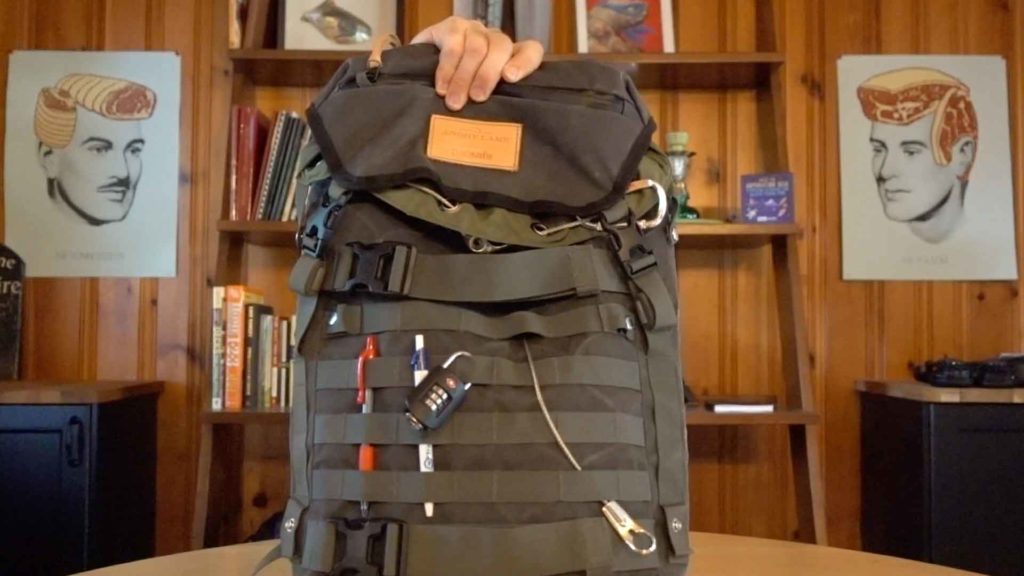
Safe Traveling Tip #3: Research where you’re planning to travel to on a detailed level
Look. I travel with a lot of expensive electronics. I have to know not only that the literal accommodation I’m staying at is safe and secure, but also that it’s location in the city is safe. If where I’m staying is located in an unsafe part of town, then by default I will always have to traverse through those areas.
Lower personal safety—or even the feeling of lower personal safety—equals higher daily travel anxiety…which equals more stress than you need!
When you find a great deal on your next destination accommodation, look closely at the comments or reviews for things that tip you off about the area. (We’ll talk more about how paying attention to the area where you are staying can actually save you a lot of money while traveling later in the article!) It’s much better to pay an extra few bucks a night for an area that’s well-lit and clearly safer, than to deal with the potential alternatives.
Use things like Google Maps street view and look for some restaurants or joints in the area to see about reviews. Keep in mind though that a lot of amazing places can look pretty lackluster on the outside! In Mexico and Spain for instance, many places look rough on the exterior, but when you get behind the facades there’s magic!
Travel Safety Tip #4: Know your options for getting to and from airports or train and bus stations
This is a little added travel tip for your high and low-level research. Before you book your hostel or whatever accommodations you’re choosing, make sure that there are easy ways to get to and from them. Especially if you’re arriving late at night.
Make sure metros or buses are running, assuming the destination has them, and where they drop off. Check to see if rideshare apps are readily available where you’re going, and if not have a taxi plan or other plan.
Or if you’re in a place that has none of the above, know your plan and put a note in your calendar as a reminder of the steps of your plan. When you land in a new country with new languages, logistics, currency, etc., your brain can go haywire. Having some notes in your calendar means you don’t have to think…just do!
And I’m all about walking a good chunk of city to get to and from my digs, but…
It’s hard to outrun the bear when you’re weighed down by 2 bags weighing upwards of 40-50lbs.
Tough Love, Tips & Strategies To Help You Finally Kick-Start Your Travel Life…Or Go Full Nomad!
Been wondering how the hell all those digital nomads, location-independent travelers, and remote workers, travel “full-time?” Maybe you’ve thought about living that life one day, but you’re really not sure where to start.
Beyond giving you the stepping stones to dive into short-term domestic and international travel, this book will show you how long-term travelers extend those tools, maximize their budgets, and turn weeks into months…or even years…of traveling the world indefinitely.
Travel Safety Tip #5: Pack your bags smarter and keep your valuables safe
Never, never, never, never (never) pack anything of value in checked bags! Look, I don’t want to assume the worst in people, but this is just a reality of travel. If it’s in your checked baggage when you check it, it may not be when you pull it off the conveyer belt. And that’s regardless of whether you have a “lock” on your bag.
I mean, the whole point of TSA-approved locks is that they’re able to be opened by TSA. But furthermore, beyond TSA, that bag passes many other hands along the journey. And we get a little complacent when traveling domestically and might believe that things are the same in airports across the world. Definitely not the case.
That cheap ass lock can be cut—or simply popped with some leverage— by pretty f*cking easily.
Someone’s still bitter about that really rare, gifted Oakley watch he forgot he hid in his main bag and then accidentally checked it. RIP.
Leave your valuables at home unless you really need them. We’ll get back into this travel safety tip again a little later.
READ NEXT: Analysis Paralysis? Rigid Plans Are Overrated—BackUp Plans For The Win!
Travel Safety Tip #6: Get travel medical insurance & get evacuation insurance too
I’m not going to beat this one to death. (Sorry, probably not the right phrasing…but hey.) I never travel outside of the US without getting travel insurance. Literally never. It usually only costs somewhere between $2-4 a day, even when I’m gone for months on end. It’s a sh*tty thing to have to add to every budget, but just get over it and do it!
This is by far one of the simplest to implement travel safety tips everyone knows in the back of their mind but rarely implements. For me, it seriously reduces the travel anxiety I have considering I travel long-term with Type 1 Diabetes and other serious medical conditions. Evacuation insurance can often be very helpful if there is a natural disaster or political disaster when traveling in a foreign country and needing to return home in an emergency.
READ NEXT: Travel Medical Insurance, Pre-Existing Conditions, & Type 1 Diabetes
If you say “well, medical care won’t cost much if I need a doctor in XYZ country…” that’s probably true, especially when compared to out of pocket medical costs in the US.
But having an phone number to call to help you navigate your health issue, especially in case of an urgent emergency, is worth the cost alone.
Unfortunately there are plenty of countries where travel is relatively safe but bribery is still a regular occurrence. That can happen with authorities as well as with medical personal. For that reason it’s always going to be your best bet to have travel medical insurance from a good network with phone numbers you can call for guidance in an emergency. You can get a super-quick idea of how much travel medical insurance would cost depending on your trip length here.
Beyond that, I pay for an evacuation plan that will get me back to the US, if needed after I use my medical coverage abroad. Yes, they’re different, and that’s something a lot of people don’t understand.
Travel medical insurance is for getting help on the ground for normal medical or emergency medical, but evacuation is for getting home for medical and other reasons.
A yearly evacuation plan usually costs between $1-2 a day based on a yearly plan. Well worth the peace of mind, especially if you travel often outside of the US.
Travel Safety Tip #7: Learn the language, at least a little bit, including some emergency words
This is actually a pretty easy one. But simply learning like 5-10 basic phrases in a language will immediately make you feel a little safer when traveling internationally.
The side benefit is that it always seems to endear the people to you when they see you attempting to at least say “please” and “thank you” in their language. Having fast friends in a new place is the side benefit!
Knowing words like “help” or “police” among others is always a good idea too. For me I also carry a printout with some helpful phrases based on my Type 1 Diabetes needs, drugs, and devices I carry.
You may be saying “well, I have that stuff in google translate on my phone.” Well, good luck with that if your phone is the thing that’s been stolen or shattered on the floor while you were out clubbing it up.
Top travel safety tips for when you are actually traveling:
Travel Safety Tip #8: Know the travel scams and take your time
There are a lot of basic travel scams. But be careful—a quick search on the interwebs might actually increase your fear of travel. The bottom line for most situations is to take your time—time is your new best friend in almost any high travel anxiety situation.
If you’re on the ground in a country that you don’t understand and someone is pressuring you, or something just seems a bit off, take a step back or away from the situation.
Scammers can be extremely smooth, and often run in packs, so just keep an eye out for things that seem off.
If you’re in a hurry you’re much less likely to take this step. Always allow yourself extra travel time, or just time in your day, until you start to feel more comfortable with travel.
Join the email list to stay in the loop on new releases!
Travel Safety Tip #9: Avoid the busiest places during the busiest times
This is my personal rule number 1 of touristy destinations. Get up early or go late, which almost always means beating the tourist crowds…and getting the best photos possible.
Crooks seem to be a sleepy lot, so morning hours are always safer.
Just factor it in to your plan and avoid the busiest tourist places at the busiest days or times. This will not only make your trip more enjoyable and less stressful from looking out for your safety, but you also simply won’t have to fight crowds!
I’ve literally had a (less-than-prepared) friend get hit by a pickpocket—in both front pockets…from behind…at the same time—while standing face to face with him in a subway train.
The next day I watched a group of pickpockets work together attempting to do it to another person. (More on being prepared for this later…)
Take this one step further if you’re flexible and travel outside of the main tourist seasons, typically called “travel shoulder seasons.” The crowds will be smaller and safer and the prices are always cheaper…on almost everything!
WATCH NEXT: Ireland in shoulder season: The Aran Isles, Hiking Connemara National Park
Travel Safety Tip #10: Use indoor ATMs, and only at a bonafide bank location!
Did you know that many large US banks have counterpart banks in other countries where they don’t charge fees because of the relationship? Or that certain banks have debit cards that charge no fees assuming you use a proper bank ATM in another country?
Those are good travel tips, but even if you don’t benefit from those options, you should always use a proper bank ATM as opposed to some random ATM on a side street! If possible, think ahead and do your banking in the daytime when lobbies of banks are open and you can use the ATM inside.
When you get near your accommodation, start looking for ATMs and banks that you’ll likely need to use and drop a pin in a mapping app for later use.
Things/places I often drop a pin on in Google Maps before getting to a destination:
- My actual accommodation address (and sometimes I mark it as “Home” if I know I’m staying a while
- ATMs at actual banks
- Hospitals or urgent cares near my accommodation
- Metro stops, train stations or bus stations I may use
- US embassy if there is one
Travel Safety Tip #11: Don’t look or dress like a tourist? (SMH…)
It really annoys me when I see articles about how to “be safer while traveling by not looking like a tourist.” Look, if you’re in a different country than your homeland, it’s pretty unavoidable! But the reality of our new Instagram age is that people are all about the selfies or getting that fabulous shot.
Spoiler Alert: If you look like a million bucks, well, there’s a chance you might at least be carrying a few bucks!
Connect & Share This Article
So you have a choice here. Simply avoid the vanity mirror of life and look more “normal” or set yourself up as more of a target. Decide that taking 42 pictures of yourself just to get “the perfect one” in front of the Eiffel Tower isn’t the best use of your time anyways. You could be in line at a Boulangerie by now!
You can prove to your friends that you were there simply by taking a picture of the same beautiful thing, but without you in front of it! This takes the pressure off to look like a million bucks and simply helps you blend in and be less of a target.
While you’re at it, leave the fancy and expensive jewelry at home. Not in the hostel or hotel room—at home.
But this does bring me to my next suggestion…
READ NEXT: The Beginner Traveler’s Guide To Going Nomad
Travel Safety Tip #12: Buy smarter clothing and you’ll immediately be safer while traveling
Now that you realize that looking like a million bucks isn’t necessarily the best way to approach travel, let’s go even further in that direction. Unfortunately, most theft deterrent products aren’t the sexiest things on the rack.
So how about just dressing smarter? There are tons of products out there that can make you feel more confident and remove some of the fear of travel in your early career. And yes, I use many of these occasionally, or at least have used them in the past.
Theft-deterrent travel pouch / wallet hides inside shorts or pants Theft-deterrent travel pouch/wallet flips out for access My favorite travel pants with zippers…that actually look good
These days I use them a little less, but many are actually mainstays. Especially depending on the changing level of safety from one foreign country to the next—or more importantly, to help travel safely from one tourist hotspot to the next.
- Hidden money pouch or hidden shoulder belt
- Slash-proof bags and “safes”
- Lockable backpacks
- Pants or hidden pocket clothing (but not cargo pants. Eww.) These are literally my favorite travel pants…well worth the high price tag (and here are my go to shorts)
See a list of these and other recommendations here…
Travel Safety Tip #13: Carry Your Belongings In A Smarter Way
This is a nuance, but a very important one. OK. In theory you’re now dressing less flashy and wearing some sort of theft-deterrent clothing to be a little safer while traveling…if that’s what the situation calls for. But let’s take this up a notch to exactly how you’re carrying your things as you wander around.
If you look more difficult to take advantage of than the people around you, well, you do the math.
Here are just a few suggestions:
Put that purse, camera, or other straps over your head/opposite shoulder and carry the valuables under your arm, slung across your body. It bugs me to no end when I see someone carrying a bag that’s entire purpose is to carry valuables…on their outside shoulder! And I see this a lot more than you would likely think I do!
If it’s not a go-to credit card or belonging, it should be left in your room or at least inside a separate pocket than things you repeatedly use. Yes, depending on the location, I have money and cards in at least 2-3 spots on my body. Assuming I get a lazy crook, they’ll only walk off with a portion of my belongings.
Front, inside, or zippable pockets my friend. For phones, for wallets, for anything. Seriously.
Lock it up, or at least clip it to a chair or table leg. Any time you sit down at any restaurant, cafe, etc., just make it a constant habit to clip your bag to the table or chair. Or you can simply loop it through. Do this when you’re in the US for habit so it becomes second nature!
Travel Safety Tip #14: Use one earbud instead of two when out exploring
This is another low-hanging fruit that really bugs me. So many travelers I see think it’s an absolute necessity to have the best possible surround sound experience no matter where they are in the world. I get it; I’m a huge audiophile and I love good sound. Music puts me in my happy place.
But walking down a street…where you are clearly a tourist in a foreign country…is not the place to strive for your best possible audio experience! This is the time to always be aware of your surroundings!
When you’re walking about international cities, stick to one earbud. This allows you to hear the music, or even better the audio directions for where you’re going, without continually pulling your phone out. (And for Pete’s sake, don’t be one of those people that leave’s their phone hanging out of your back pocket!)
Using only one earbud allows you to hear what’s going on around you and to pick up on any audio clues that there could be shenanigans afoot. (Man. I’m really channeling my inner Sherlock Holmes voice this writing sesh.)
To clarify, rock on when you’re anywhere safe and not out exploring!
Travel Safety Tip #15: Tips to help at clubs & while partying in other countries
Look, I get it. the club scenes in places like Portugal or Spain are off the hook. But you are significantly increasing your odds of being the target of shenanigans when you venture out between say 10pm and 8am.
Now, I am not in any way saying not to go out during those hours—experience these things if that’s your jam!
But these are the times when you absolutely need to be hyper-vigilant about your safety, the safety of your belongings, and the safety of your friends.
See my full list of safe clothing & travel security recommendations here…
Ask questions of the locals about safety when going out. Consider not taking even your IDs (many clubs will let you in with a picture…at least if you don’t look like 14 years old), and leaving anything unnecessary back at the hostel or hotel. Travel in packs with people you trust. Avoid getting too drunk or accepting open drinks from strangers.
READ NEXT: Beautiful Porto: Things To Do, See, And How To Travel in Porto, Portugal
Have a plan on how you’ll get home, then have a plan on how you’ll get home if the sh*t hits the fan.
For instance, if you lose your phone or your money or metro pass, etc. Write the address of the accommodation you’re staying in or some general directions on a piece of paper and put it in your pocket.
Yes, some of these things sound like common sense, or maybe even excessive. But I’ve happened to notice that our common sense tends to go to sh*t after a few drinks and with a little pressure from friends.
And “excessive” typically only seems excessive until you need those extra measures.
Make a copy of your passport or ID and leave the originals locked in your room
To take it one step further, you don’t need to be walking about with your passport on you at all times! Actually, hardly ever. Make a copy and keep that with you—whether on your and your travel companion’s phone, or on paper…or both.
WATCH NEXT: 2 Pockets Picked Simultaneously? Also… Parkour! (…Gone Wrong)
I’ve heard horror stories of how difficult it is to get a new passport if you need to. So unless you’re crossing borders, just play it save and leave that important travel document—and any other important documents—locked up.
When in doubt, just ask around at the hostel or accommodation as to whether you need to have it for whatever activity you’re headed to. They should be able to give you a good idea all around on how to stay safer while traveling in their country!
READ NEXT: Game-Changing Hostel Facts: Did You Know There are Hundreds of Hostels in the US!?
Travel Safety Tip #16: Make some noise! If you’re ever in trouble, get loud!
If you do ever find yourself getting pickpocketed or worse, as quickly as possible get loud and know how to say “help” in the local language. Loud might mean yelling for help if you’re on the street, but it could also mean simply asking for help or an escort if you’re feeling uncomfortable in a bar or any other public environment.
Men, this goes for you too! Put away that foolish pride and listen to your gut. If something feels off, speak up.
It’s much better to overreact and swallow a little pride to take yourself out of a potentially threatening situation than to deal with the aftermath if you disregard a situation that ends up bad. This is about your personal safety, not necessarily your pride.
Travel Safety Tip #17: If you’re traveling alone, consider giving friends or family access to a tracking app
There are plenty of apps now that allow family members or friends to track your every move. Don’t get me wrong, these seriously rub me wrong, and fundamentally I’m pretty against even the idea of giving up my autonomy. Even if I know the person with access may never actually look at where I’m at.
I have nothing to hide, but that doesn’t mean I want people to be able to track my ever move.
Well, my feeling about tracking apps changed when I was diagnosed with Type 1 Diabetes and I saw the concern in my dad’s eyes—and heard it in his voice—as I headed off for another 2-3 months abroad…solo. Now my dad has piece of mind when he looks at a dot and sees that I’m at my hostel, or at least that I’ve moved recently.
In reality, a tracking app isn’t going to do anybody much good in the moment. If someone mugs you or you get nabbed while traveling in a foreign country, it may just be used to find the corpse. (If you’ve read this far, bravo. And I’m kidding about the corpse thing…kind of.)
But especially if you have a serious medical condition like me, which could land you in a coma or a similar incapacitated situation, the ability for someone halfway across the world to alert authorities or emergency personnel to your whereabouts could be paramount.
For instance, if my blood sugar drops super low, to dangerous levels, my Dexcom continuous glucose monitor sends an alert to my father no matter where I am in the world.
If he doesn’t hear from me quickly that I’m upright and dealing with it, and it persists, he could use a tracking app to get me help. That’s literally life and death stuff there, and it unfortunately happens way too often with complications from Diabetes.
I know, this isn’t an article about Type 1 Diabetes, but I appreciate you being willing to learn a little bit more about what my daily realities are. (Virtual high five sent.)
READ NEXT: I Just Got Diagnosed With Diabetes And I’m FREAKING OUT!
Travel Safety Tip #18: Last but not least: Be smarter and more prepared than those around you
You’ve already taken a huge step by reading this and educating yourself about new ways to stay safe while traveling. Of course, that assumes you put some of this into use.
Again, this article isn’t meant to feed any paranoia, and you don’t need to implement all of these at once…or any of them for that fact.
Know your options and choose what feels right for your situation. Better safe than sorry.
Connect & Share This Article
Feel free to reach out if you have questions, or leave a comment below!
Cheers!
— Jason
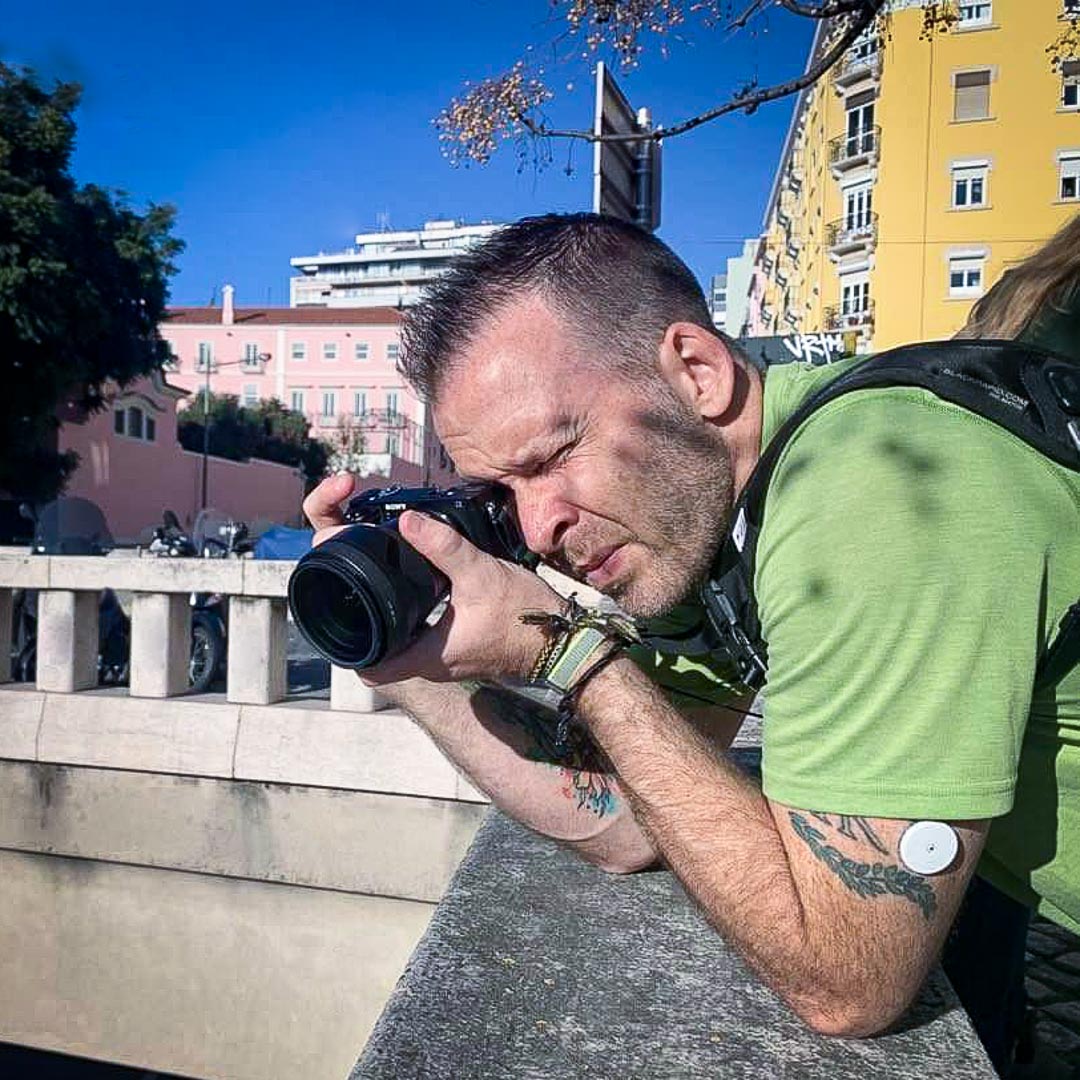

About Jason Robinson
Jason is the author of “The Beginner Traveler’s Guide To Going Nomad,” as well as the voice behind the words and the eye behind the lens for The Nomad Experiment. “Planning to travel at some point” wasn’t actually getting the job done, so nearing 40 he decided to make it a priority, nomatter how scary that was. A few years later—through the pandemic and a type 1 diabetes diagnosis at age 42—now living a life of nomadic travel, he’s speaking out to encourage others of any age, or with any serious medical diagnosis, to live an unconventional life.
Tough Love, Tips & Strategies To Help You Finally Kick-Start Your Travel Life…Or Go Full Nomad!
Been wondering how the hell all those digital nomads, location-independent travelers, and remote workers, travel “full-time?” Maybe you’ve thought about living that life one day, but you’re really not sure where to start.
Beyond giving you the stepping stones to dive into short-term domestic and international travel, this book will show you how long-term travelers extend those tools, maximize their budgets, and turn weeks into months…or even years…of traveling the world indefinitely.


